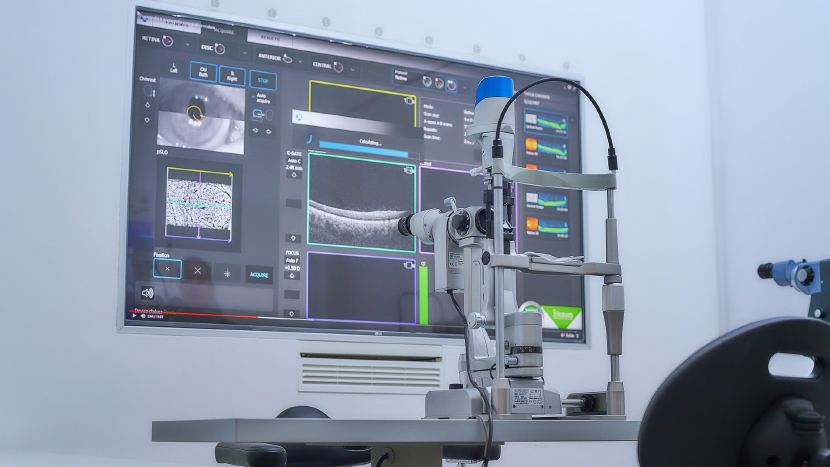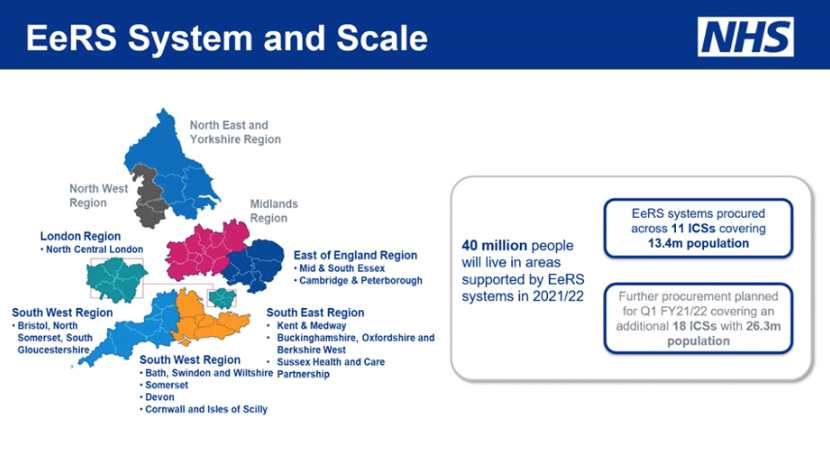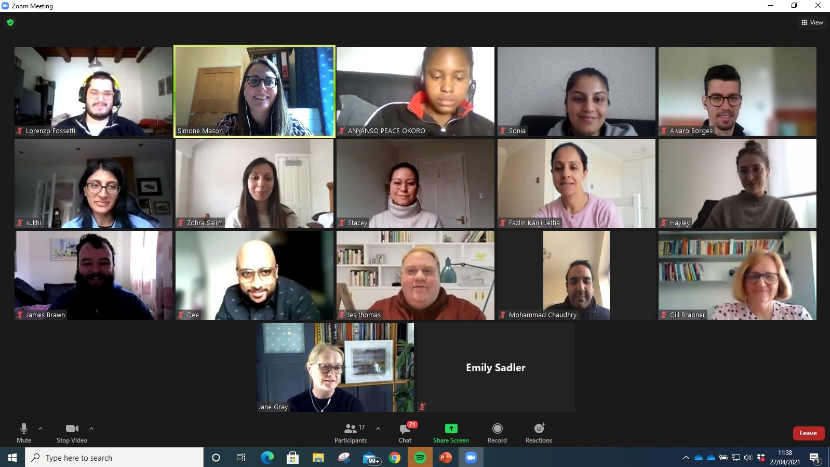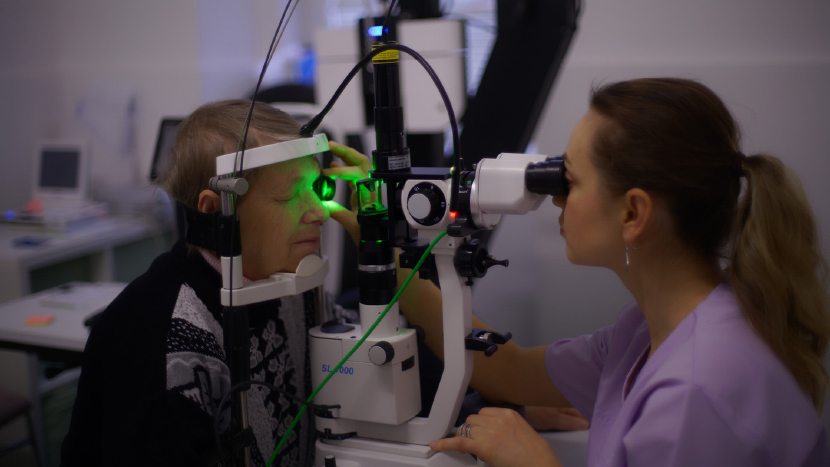Recovery and Transformation
Driving the Future of Primary Eye Care Delivery

We are at a pivotal point in the progression of primary eye care in England. As the NHS undertakes radical transformation to meet the changing needs and expectations of the population it is essential that the sector has the strongest possible representation. This will unlock its full potential and allow it to take its place as an intrinsic element of future public healthcare delivery.
We are building on strong foundations. The primary eyecare sector’s response to the COVID crisis proved its willingness, appetite, and ability to deliver outstanding patient care via the Covid Urgent Eyecare Service (CUES). CUES demonstrated the sector’s ability to relieve pressure on secondary care while supporting patients closer to home, which is one of the guiding principles of the NHS Long Term Plan.
As a result of CUES, the depth of clinical skills available in primary eye care and its clear capacity to add value far beyond the GOS was recognised by numerous NHS stakeholders. This opened doors for stronger engagement on the role of primary eye care in overall NHS patient care delivery, which LOCSU is pursuing through its close involvement with the National Eye Care Recovery and Transformation Programme (NECRTP).
The National Eye Care Recovery and Transformation Programme: Aims and Objectives
The NECRTP has evolved following the integration of the various NHS England improvement programmes into the national Pathway Improvement Programme. This covers Eye Care alongside Musculo-Skeletal, Cardiology, and Urgent & Emergency care and aims to avoid duplication of effort by coordinating resources so that transformation occurs across the whole pathway. Eye care transformation will be a vanguard for wider NHS transformation.
The NECRTP has three core aims:
- To improve experience, outcomes, safety, and quality of care for patients in a sustainable and efficient way
- To set out a bold but grounded digital approach to transforming eye care to improve clinical outcomes, patient experience, and productivity
- Crucially, in doing so, NECRTP will also create a replicable model for NHS digital transformation identifying the opportunities that improvement should embrace and mechanisms for scaling their adoption across a federated system
These aims will be underpinned by a digital methodology that applies the culture, processes, operating models, and technologies of the internet era to respond to the raised expectations of the general population and of professionals within healthcare.
LOCSU’s Involvement with NECRTP: Action and Influence
LOCSU has been a proactive force within NECRTP from the outset.
Since April 2021, LOCSU’s Clinical Director Zoe Richmond has been seconded to NHS England two days a week as a Clinical Lead directly supporting the programme. In this position she is powerfully placed to deliver clinical leadership and act as the voice of primary care optometry, underlining the core expertise within LOCs and the sector.
This close integration between LOCSU and NECRTP facilitates a clear route from the expertise and experience of primary care stakeholders on the ground, through LOCs, to a position of national influence. It is the best possible scenario for primary eye care and will help to realise our vision of ensuring that the skills and opportunity in primary care are fully utilised and expended before decisions are made to refer to secondary care.
LOCSU’s close relationship with the national programme has provided a further route of influence for all sector bodies to help ensure we deliver a strong and unified message to those outside the sector about its potential.
The NECRTP also prioritises clinical leadership at region and system level, recognising the vital role played by local clinical leaders and their geographically relevant expertise in local service delivery.
Key NECRTP-Related Achievements: Recognition, Resources & Reporting
Inclusion in NHS England Planning Guidance
The first major outcome of the programme’s work and lobbying of NHS stakeholders was the inclusion of eye care in NHS England’s priorities and operational planning guidance for 2021-2022. This is the first time that eye care has been specifically referenced within planning guidance and reflects recognition of its enormous potential to deliver NHS objectives. NHS England also published eye care planning implementation guidance as an official annexe to the main priorities and operational planning guidance. The NECRTP and LOCSU were instrumental in informing the content of this guidance and the recommendations within it, ensuring the primary eye care has a voice at the highest level.
An important feature of the planning and implementation guidance was its use of the term “eye care” rather than “ophthalmology”. This appropriately recognises all the providers of eye care across primary, community and secondary care settings.
Specification and development of Optometry First Framework
Optometry First is a comprehensive new care model fully utilising Primary Care Optometry in the delivery of first contact care to resolution and continuity of care for people with a long-term eye condition, working in partnership with the hospital eye service.
The NECRTP is working in partnership with LOCSU and early adopters to explore the optimal operational model and financial model to enable the spread of best practice.
Read more about Optometry First.
Development and Launch of Future NHS Eyecare Hub
The Future NHS Eyecare Hub is designed as a knowledge-sharing resource to support the implementation of NHS England recovery guidance on improving eye care services. It contains straightforward guidance, advice, case studies and materials such as pathways, protocols and patient leaflets, alongside the full Optometry First toolkit. It also acts as a forum for discussion, support and networking between all who are involved in delivering or overseeing eye care across England.
EeRS Rollout
Under the principle of leveraging digital tools to create end-to-end eye care transformation, the NECRTP has been supporting the adoption and scaling of the Eye care electronic Referral System (EeRS) to enable electronic referral and image sharing. Rollout is progressing in all seven regions. To assist adoption, working closely with the sector’s IT committee, NHSx is developing a common API standard and data model with the aim to minimise double-keying during data entry and simplify system integrations in primary care.

Reporting and Knowledge-Sharing
To support LOCs during this important recovery and transformation period, LOCSU created a dedicated web page containing regular reports from NECTRP along with news from other stakeholders, FAQs and updates on events.
“The national eye care programme is the essential mechanism through which LOCs can influence the direction and delivery of extended primary eye care services across England. Working within the programme and engaging with regional leaders and LOCs we are ensuring that the key messages are heard at the right level to help shape the future of the sector, for the benefit of the people we serve.”
Zoe Richmond, LOCSU Clinical Director commenting on the relationship between LOCSU and the NECRTP



